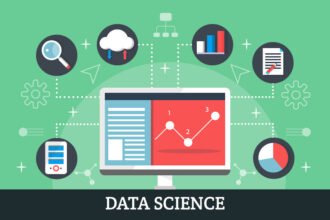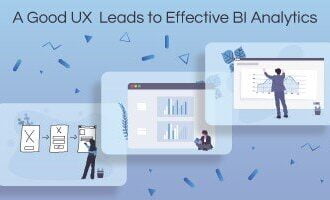 It has long been assumed in the BI community that more information is “a good thing” when it comes to making better decisions. Except when there is too much information…when we encounter information overload. Some qualify the thinking by requiring information to be relevant, although that raises questions of how to determine relevance, especially in entirely novel or poorly understood situations. Despite any such reservations, the BI industry generally focuses entirely on information-related issues, from preparation to presentation, and leaves any thinking about the process of how humans make decisions to some unidentified other party.
It has long been assumed in the BI community that more information is “a good thing” when it comes to making better decisions. Except when there is too much information…when we encounter information overload. Some qualify the thinking by requiring information to be relevant, although that raises questions of how to determine relevance, especially in entirely novel or poorly understood situations. Despite any such reservations, the BI industry generally focuses entirely on information-related issues, from preparation to presentation, and leaves any thinking about the process of how humans make decisions to some unidentified other party.
So, how does insight arise in the human process of decision making? Of course, information does play an important role, but the information we focus on in BI is but a very thin sliver of the actual information that the mind takes into account. Today, neurobiology and psychology tells us that our minds are absorbing information from the earliest days of life, and that such pre-verbal information has significant and unconscious impact on all of the decisions we make during our lives. Such early information conditions our social behavior and expectations of the world. In a similar, although probably in a somewhat more conscious manner, later life experiences create an informational background that colors our thinking in each and every decision we take.
BI purists may argue that such information is unquantifiable and therefore should be discounted. However, its impact can be large and may be inferred from the ongoing behavior of people involved in the decision making process. When we work in teams, we automatically notice this information and adjust accordingly. Joe always brings up such-and-such a problem. Maria regularly took issue with the previous CFO, but supports the current one, even though the policies and practices are unchanged. This informal information could be gathered electronically and mined for patterns even today to create an entirely new view of how irrational most decision really are.
This leads us to look beyond information as the sole or, even, majority basis for decision making. Rational choice theory has long held sway as the foundation of thinking about business decision making. In recent years, the roles of intuition, gut-feeling, emotional state and intention are slowly coming to the fore as possible contributors. The BI community has yet to catch up on such thinking. And, indeed, its integration into decision support (to recall that old phrase) requires software and methods that are far from those found in traditional and current BI.







